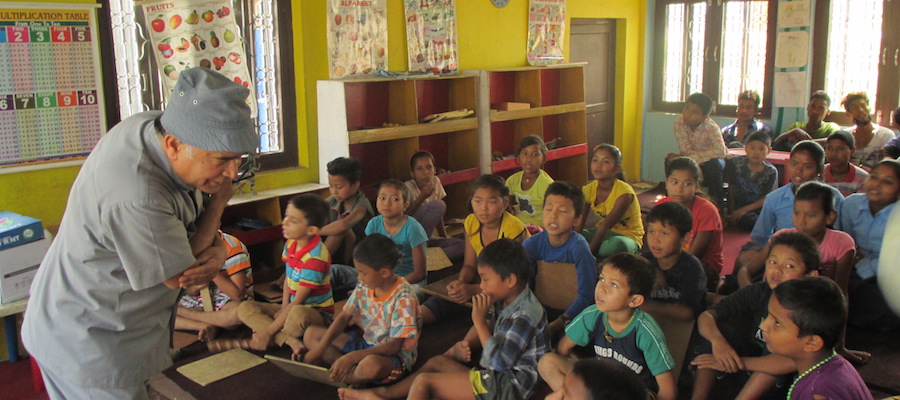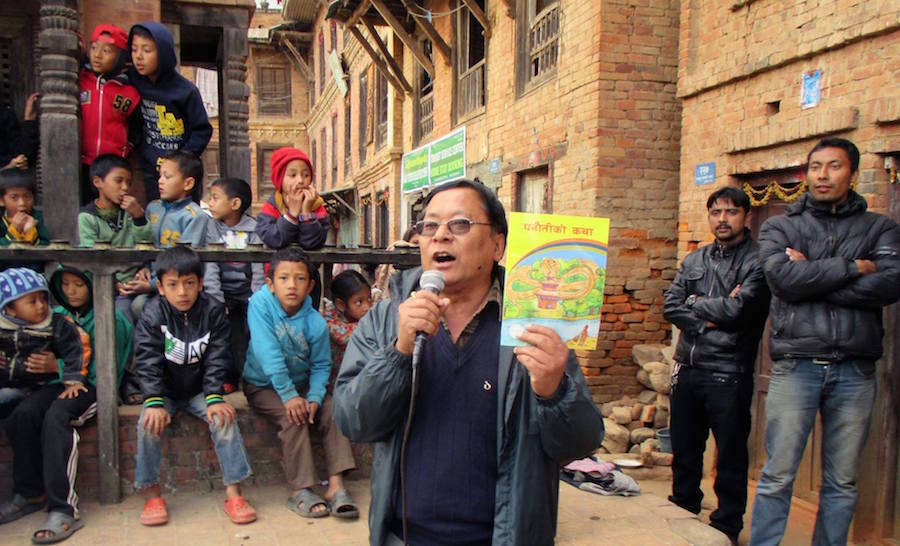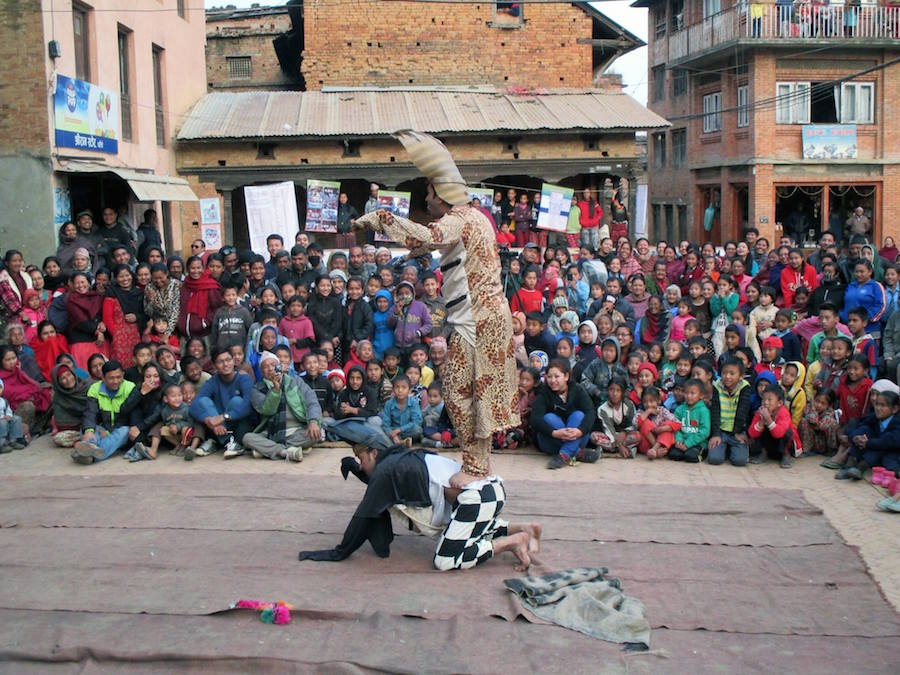
For centuries, the history of Nepal has been transmitted from generation to generation through oral storytelling: passing on stories about culture, livelihoods, and the natural environment of the country. Yet as Nepalese society modernizes and globalizes, this practice has begun to recede: stories once told are forgotten; traditional dances blend with more modern variations; and local histories are lost.
In the past, traditional musical castes such as the Gandharbs would travel from village to village across Nepal’s rugged Himalayan terrain, carrying news and preserving cultural diversity through storytelling and song.
Today, oral methods of historical preservation in Nepal have waned with the influx of modern media and communications technology.
The fading of oral history is a scenario more common than one might think – leading UNESCO to develop a Universal Declaration of Cultural Diversity to promote the preservation of unique cultural identities. Then Director General of UNESCO, Koichiro Matsuura said:
“The cultural diversity around us today is the outcome of thousands of years of human interaction with nature and among people with different customs, beliefs and ways of life. Having inherited this priceless legacy, we need to ensure it is passed down to future generations.”
To preserve the endangered oral heritage of rural communities, READ staff in Nepal developed a program called “My Grandparents Stories, My Pictures,” which was carried out in five READ Centers across the country.

Through the program, elders from the five communities in Nepal were selected for their extensive knowledge of historical events and endangered cultural practices. They gathered at their local READ Center libraries – the Jhuwani READ Center in Chitwan, Laxminarayan Center in Lamjung, Janajagaran Center in Nuwakot, the Gyanbikash Center in Panauti, Kavre, and the RIRC Model READ Center in Badikhel.
At the Centers, the elders participated in workshops on storytelling, led by the Nepalese Society for Children’s Literature (NESCHIL). Then, groups of twenty local youth per village gathered at the Centers to listen to their elders tell their stories. The youth created a written record of the stories and made illustrations to accompany the stories.
The stories were compiled into five illustrated storybooks, published, and returned to the community libraries as permanent records of the historical tales. The books will be widely distributed across different communities of Nepal.
Click here to read one of the storybooks translated into English.
Traditional arts like painting, dance, music, and drama have always been integral to the telling and re-telling of stories in Nepal, so the communities developed theatre programs to act out the stories.
The Mandapika Theatre Group worked with local villagers to act out the vivid scenes of the storybooks in public squares to audiences of hundreds. This creative method of showcasing the traditional stories ensures that illiterate people can participate in them as well, and that the stories might once again be shared from generation to generation.

“This project not only helps revive local culture and tradition, it also forms relationships across generations, between children and their elders. This kind of community engagement at the library can really transform a village,” said READ Nepal Country Director Sanjana Shrestha.
Thanks to our partners for the success of the project: the Nepalese Society for Children’s Literature (NESCHIL), the Mandapika Theatre Group, and all five READ Centers (the Jhuwani READ Center in Chitwan, Laxminarayan Center in Lamjung, Janajagaran Center in Nuwakot, the Gyanbikash Center in Panauti, Kavre, and the RIRC Model READ Center in Badikhel).
Please contact us at info@readnepal.org if you are interested in helping us share these illustrated storybooks across Nepal.



